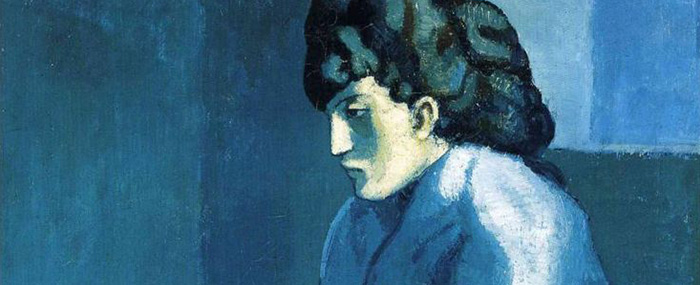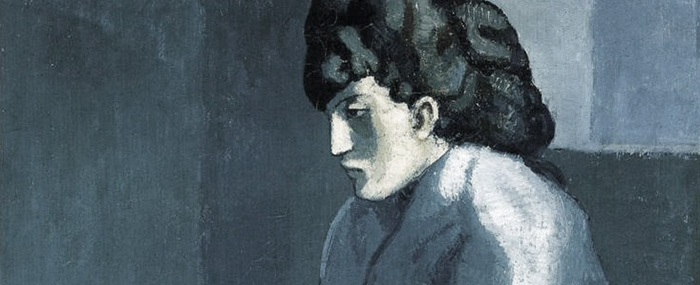What color do you think of when you think of depression? It’s probably a dark color, like blue, black or gray.

There is a reason for that.
Research from the University of Freiburg shows that depressed patients cannot view black and white contrasts accurately.
A new study in Biological Psychiatry showed a dramatically lower retinal contrast gain in patients with depression than in healthy subjects.
For the study, Seeing Gray When Feeling Blue? Depression Can Be Measured in the Eye of the Diseased, Dr. Emanual Bubl and his team evaluated 40 patients suffering from depression (20 who were taking antidepressant medication and 20 who were not.) 40 healthy patients were also studied as a control.
They found a significant decrease in the retinal sensitivity of depressed patients, even patients taking medication.
Further, the more severely depressed a patient, the lower the retinal response.
Depression can change the way a patient sees the world, eliminating the vibrancy of naturally occurring colors.
But also, viewing the world as a drab, colorless environment could worsen depression, perpetuating the emotions of loneliness and sadness.

According to Mark Hyman MD, there is a significant correlation between biology and mood.
Check out our courses on Mind/Body Medicine here for more information.
In the meantime leave a comment. How do you treat patients with depression?
Thank you for this ?
Being in a home or anywhere where rooms are all white, triggers my depression. I love dark colors.
Thanks for the information, i am bookmarking it for future updates.
Tell them a joke. Tell them an interesting, but short story. Seriously. After assess their level of sadness, assess how much uplifting needed to bring them back to a more holistic view of reality. But small doses of humor at the appropriate times and sharing random antidotal stories are so refreshing. Seriously.
When sad/depressed people spends their waking hours dwelling on their own problems, the last thing they want is someone to ask them the cliche “How did that make you feel.” They are trying to come back to a functional level in society and they don’t want to feel like a Guinea pig because they are very intelligent people.